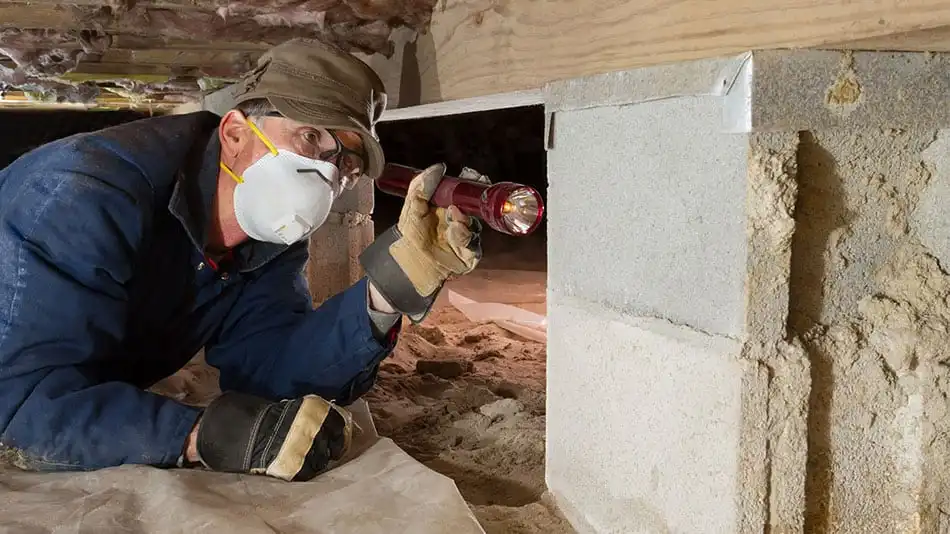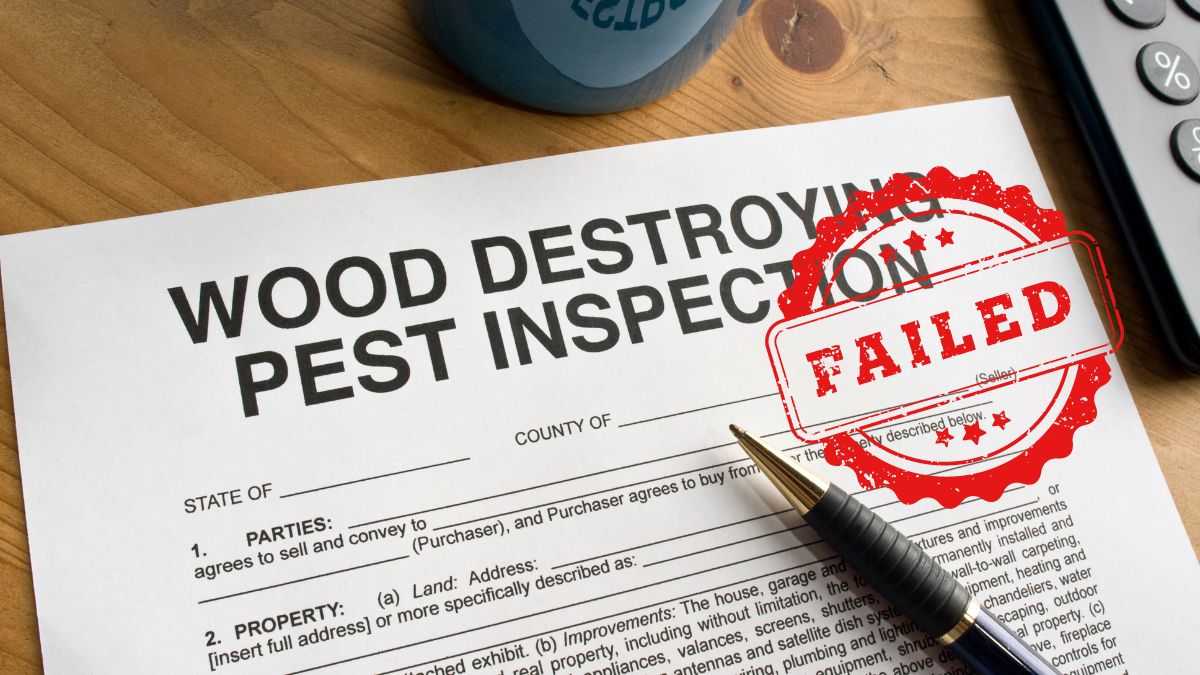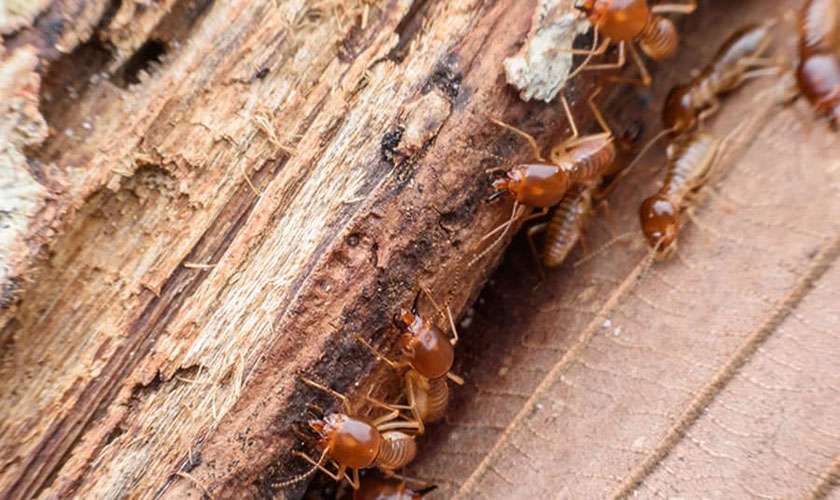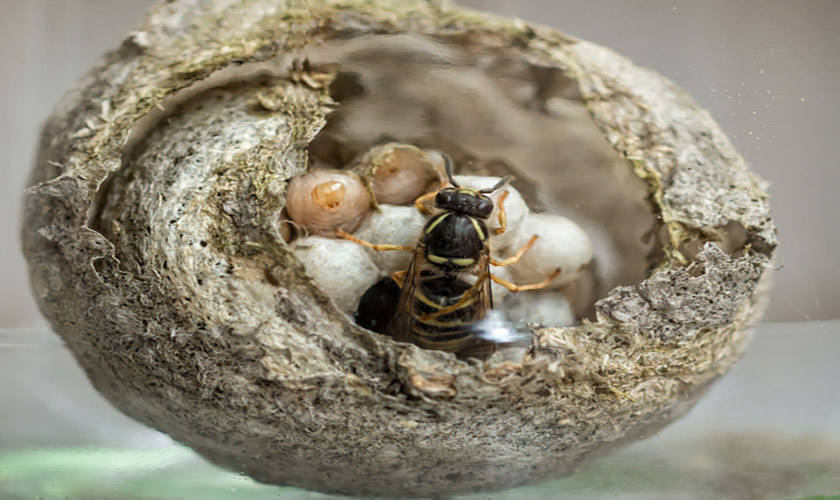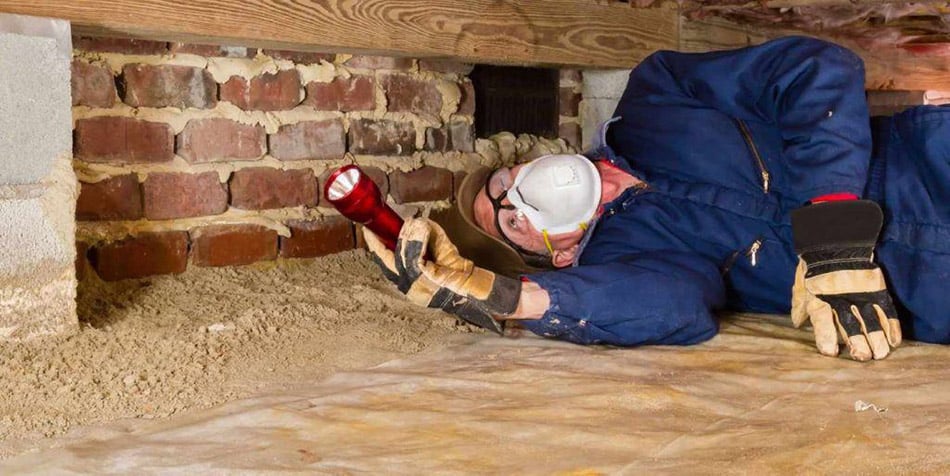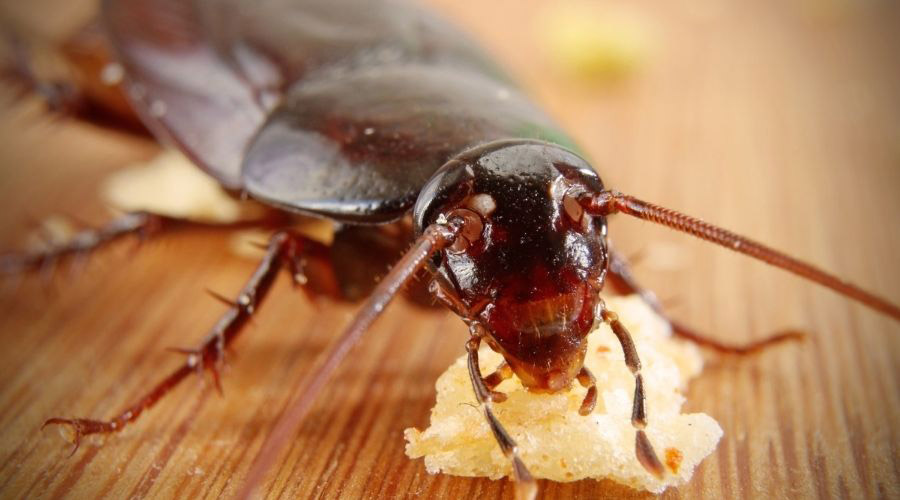
There is a common trope: roaches will survive anything, even a nuclear wipeout. The thought of roach-infested earth is enough to make your skin crawl. Roaches are resilient. And that’s why there are all sorts of remedies that promise you a roach-free house.
If there is any bus repellant out there that has been under investigation the most, it would be ultrasonic pest repellers. However, do they work at repelling cockroaches as a whole?
Manufacturers claim ultrasonic pest repellers an effective e-deterrent to home critters. However, users and researchers beg to differ. Ultrasonic pest repellers are a 50-50 product. There isn’t enough research to pass it as a viable solution to your roach problem.
Get FREE quotes from licensed pest control technicians in your area today. Whether you need spraying for ants, roaches, spiders, ticks, mosquitos, or bed bugs, We Can Help! All technicians are screened, licensed, and insured.
We’ll explore how ultrasonic pest repellers work and why you should look at other repeller options if you want to keep your house roach-free.
Do Electronic Roach Repellents Work?
Unfortunately, no. electronic repellents don’t work. At least not going by actual customer reviews or scientific findings.
Bugs are frustrating. Roaches can be a nightmare, especially when it’s a recurring problem. You can understand why people flock to a solution as simple as an electronic roach repellent. However, let’s look at the science behind the theory and why it sounds viable.
The theory behind roach repellent is frank. Roaches are extremely sensitive to sound. That’s why they scamper off so fast when you move even the slightest bit. Therefore, it would work if you have a product that could emit sounds that humans can’t hear yet that are disruptive to roaches.
Ideally, a roach repellent is a device you plug on a wall outlet. The repellent is supposed to emit a sound that causes an audiogenic seizure response.
The response is similar to what you would see during a doomsday apocalypse, except, in this case, it’s for roaches. It is supposed to disorient them into walking in miscalculated directions and make them hemorrhage—dark stuff.
When you think about it, it’s a step up from crude methods such as the old flip flop. These repellers are popular for a few reasons.
- They are easy to use.
- They’re not disruptive to home setups.
- They don’t require much of your input.
Scientific Study
After several complaints, though, science had to step in and investigate the efficiency of these products.
In one of the earliest scientific tests to check whether sonic and ultrasound affected roaches, the scientists concluded exposure did not affect the cockroaches.
The researchers used three male German cockroaches. (It might be worth noting female roaches tend to be more resilient than males.)
The bugs were placed in three separate confinements and blasted with three different frequencies ranging from 26 kHz to 42kHz.
None of the containment boxes showed the ultrasonic wave to be effective enough to qualify as a pest repellent.
Does Ultrasonic Sound Repel Cockroaches?
Most ultrasonic repellers are made to keep away pests such as crickets, mice, roaches, and other bugs. Ultrasonic sound has a super negligible deterrent effect on these pests for a few reasons.
1. Ultrasonic Sound Doesn’t Travel Far
If ultrasonic sound were to repel cockroaches, it would have to be a powerful wave capable of traveling a few meters from the device. Roaches come from random places. You could have a clean house but get bugs from an untidy neighbor.
If ultrasonic sound were to repel cockroaches, it would have to cover a significant distance so you can have a no-cockroach buffer zone.
However, the wave is short-range and too weak. Cockroaches will come in from all directions and make their homes in suitable spots.
2. Barriers in the House Block the Sound
Unless you plan on having an ultrasonic sound repellent in every electric outlet in and around the house, you might have a problem repelling roaches.
The workaround to such a problem would be installing ultrasonic sound repellents in places with a direct path to where you think cockroaches hide.
Otherwise, the wave range is minimal, and the barriers make ultrasonic sound ineffective as a solution.
3. Roaches Get Used to the Sound
Roaches, like most animals, adapt quickly. It helps them survive in unfamiliar territory. If roaches sense a disruptive ultrasonic signal in the surrounding, they might learn to avoid the area. The device is ineffective since the cockroaches will move to an area without coverage.
4. Most Ultrasonic Sound Devices Were Not Approved
Manufacturers put all kinds of claims on the boxes at the peak of these ultrasonic sound devices against pests. They didn’t specify if the devices were approved for safety standards or efficiency. It led to flooding the shelves with substandard machines that didn’t work.
However, after several complaints, manufacturers were legally obligated to test the devices and put warning labels on the packaging. It became more serious when FTC served manufacturers with warning letters asking them to present scientific evidence that their products worked as they claimed.
It was a helpful move since it helped people make informed choices the next time they sought solutions to their roach problems.
What Sounds Do Cockroaches Hate?
Realistically, some sounds unsettle roaches. These sounds alert cockroaches of human presence or sudden movement in the vicinity. These are some of the sounds that cockroaches can’t stand:
- Drumbeats
- Slamming doors
- Footsteps
- Loud claps
- Strong vibration
All these sounds have something in common. They are common in a house with people. Roaches are more afraid of you more than you are of them.
In an ideal roach world, they would infest your home, eat what they can, and lay their eggs in dark corners. However, they must protect themselves.
They don’t like vibrations. Roaches will take off when they sense any vibration. So sudden loud music will set them off. These sounds tend to travel in all directions.
Even when there are barriers from walls in the house, roaches can still pick up the vibrations thanks to the hairs on their super-sensitive antennae.
Sudden loud noises like claps and slamming doors will set roaches scampering off in all directions.
As much as these sounds are effective against roaches, they are not practical in keeping them away from the premises. If you have to use ultrasonic sound repellents to keep out cockroaches, use other preventative methods.
What is the Best Repellent for Roaches?
The best approach to keep roaches away from your home is to attack the roaches’ senses. The most effective are scent-based repellents.
1. Sprays
Bug sprays are effective against bugs. Most sprays use pyrethrum-based ingredients to keep roaches and other pests out. The best thing about sprays is they come ready-made. Manufacturers are also considerate about pets. Therefore, they make these products to be non-toxic to pets.
Example: Mighty MintCockroach Repellent
For instance, this Mighty MintCockroach Repellent is a house-safe, pet-friendly spray made from one of the scents that bugs can’t stand, peppermint oil.
It’s a plant-based solution that incorporates other roach deterrents. It appears to be working since thousands of positive reviews about it.
Example: Ortho Home Defense Insect Killer
Also, check out Ortho Home Defense MAX Insect Killer. This spray doesn’t just claim to deter bugs. It supposedly kills them, too. It’s rated for indoor and outdoor use. It uses InvisShield¨ technology to keep out bugs. It’s effective for 12 months from when it’s applied.
2. Pouches & Scent Stations
Pouches are a safe approach to keeping roaches away. They are beneficial when you want to keep the roach repellent away from kids and pets.
Pouches and scent stations use tiny bags. Pouches use a combination of the toughest repellent oils, such as:
- Cedar
- Cinnamon
- Lemongrass
- Rosemary
- Mint
- Peppermint
These oils are excellent at keeping pests out of hiding areas, so strategically place them within your home.
The highest-rated pouches and scent stations, such as the Eco Defense Pest Control Pouches, were unavailable at the research time.
You can make your scent stations using ordinary ingredients in your kitchen. Products such as crushed garlic make powerful scent stations since they linger in hidden areas. Plus, they are safe for pets.
3. Bait Stations
Bait stations work by enticing cockroaches with tainted food. A roach picks food from the station and returns it to the nesting area.
Usually, nesting areas have many bugs in them. The other cockroaches might eat the tainted food, which affects them, too.
Alternatively, the station might attract many roaches at once. If the cockroaches take food to the hiding spot, any cockroach that eats the food dies. Bait stations are adequate for when you want to finish off an infestation from its source.
Combat Roach Killing Bait uses Hydramethylnon to poison the roaches.
However, it would help if you didn’t use bait stations with deterrents. You want roaches to pick the food from the station. Keeping insects away renders the bait station ineffective.
4. Essential Oils
Essential are highly effective against roaches. They irritate the bugs’ sense of smell. In some cases, some essential oils are so toxic to cockroaches; they kill them. Five of the most effective oils you can use to keep roaches away.
- Eucalyptus oil
- Mint oil
- Yarrow oil
- Oregano oil
- Rosemary oil
Scientists tested these oils to check their efficiency against roaches using the brown-banded cockroach as the test subject.
They found that oregano and rosemary oil was the most lethal against roaches. Rosemary oil had a 100% mortality rate, while mint oil had the slightest effect. Oregano was ranked the best repellent for its one-week residual lasting impact.
As far as oils go, you can also use tea tree oil and lavender oil. Combining essential oils with vinegar boosts your essential oil deterrent since roaches also avoid vinegar’s choking scent. It also stretches your oil to ensure you don’t waste much.
5. Specific Plants
Most times, the infestation will start from outside. Therefore, you must establish a barrier between your home and the roaches.
Plants are a great way to create a roach-free environment. These are the most effective plants you can use.
- Chrysanthemums: Are a vital ingredient of many insecticides. Fortunately, they grow well in gardens. They let out a smell that irritates cockroaches enough to keep them away from your home. Also, they are pretty.
- Catnip: This plant contains nepetalactone, a toxic compound to bugs and other pests. The only risk you have when you plant catnip is when you have a pet cat. As you know, cats love the stuff. It will go a long way in creating a barrier against roaches.
- Bay leaf: It may be an incredible kitchen ingredient, but it’s lethal as a roach deterrent. It contains eucalyptol, the same powerful agent in eucalyptus oil. You may want to crush this one if you want the best result.
6. Eliminating Existing Cockroach Populations
Borax
If the roaches have infiltrated your home, you can try some tried and tested methods to finish them off. One of the best solutions is Borax. Borax contains sodium tetraborate.
The sodium in sodium tetraborate dries out the cockroach from inside, effectively killing the pest. However, the cockroach must eat the Borax to be effective. Here’s the kicker, though.
Borax sticks to the roach’s legs. The insect eats it when it cleans itself—Mix Borax with other household things like sugar, baking soda, or food.
Diatomaceous Earth
Alternatively, spread diatomaceous earth around places where roaches feed. It takes time for you to see visible changes – give it about two weeks. However, it could be shorter since it depends on how long the roach carries the diatomaceous earth back to its nest.
Diatomaceous earth works just like Borax. It dehydrates the roach from the inside and its exoskeleton.
7. Professional Pest Control
When all else fails, call in the professionals. A professional pest control service has the right tools to assess the extent of your infestation and the right roach killers. They might use their products to kill the roaches if the critters have overrun your house.
Professional pest control is best if you notice roaches overrunning your home. You can then use the repellers to keep cockroaches away to prevent another infestation.
Take These Precautions When Buying Cockroach Repellent
- Manage your expectations when buying ultrasonic pest repellents. Even when you get one that works, give it time to see if it has any effect. Three weeks is a waiting period. However, be realistic. If it doesn’t work, ditch it.
- Place repellents in suitable locations. Their efficiency is limited by space. Make sure any deterrent is in an individual room. This makes it easy to maximize the results. If you notice one of the deterrents works better than another, stick
with that one. - Only go with a deterrent with strongly positive reviews from where you get it. You’ll know what to expect.
- When it’s appropriate, you can use two methods at the same time.
- Prioritize areas where you cannot afford roach infestations. Baby rooms come to mind.
Conclusion
A ton of pest repellent will sell you the dream of a roach-free house and shortchange you. However, you will be equally wrong to blindly trust one product without a quick spot check of its efficiency.
Get FREE quotes from licensed pest control technicians in your area today. Whether you need spraying for ants, roaches, spiders, ticks, mosquitos, or bed bugs, We Can Help! All technicians are screened, licensed, and insured.


